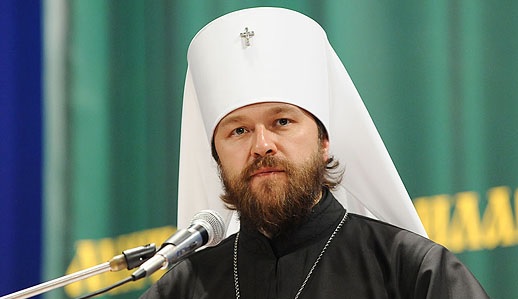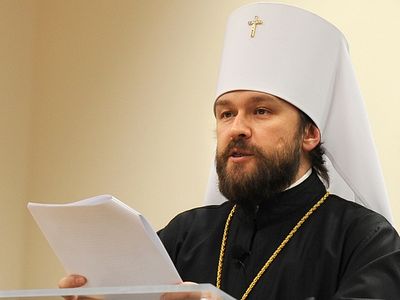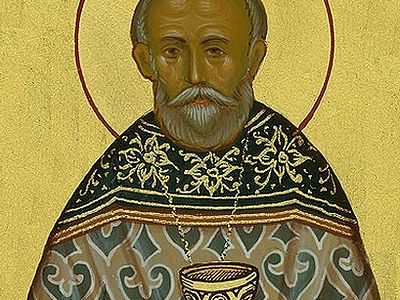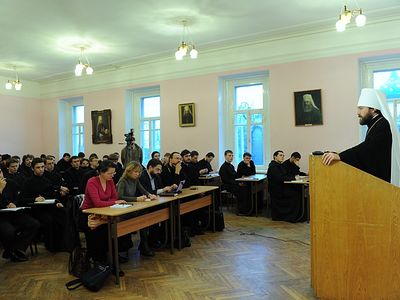Source: Interfax-Religion
January 22, 2016

The position of the Moscow Patriarchate on the issue of the possibility of a meeting between the patriarch and the pope has not changed and a meeting is possible, but only after the problems in the relations between the two Churches are resolved.
"The hierarchs of the Russian Orthodox Church have never denied such a possibility in general, but the objective conditions have so far not allowed for its realization. Such a meeting should be well-prepared. There is a need to reach agreements on the main issues in relations between the two Churches, which will then be reflected in the joint statement of the patriarch and the pope," Metropolitan Hilarion of Volokolamsk, the head of the Synodal Department for External Church Relations, said in an interview with the Serb newspaper Vecherniye Vedomosti, a translation of which was posted on the website of the DECR.
Metropolitan Hilarion said the actions by the Uniates (Greek Catholics) in Ukraine are "the main obstacle" in the dialogue between the Orthodox and Catholic Churches.
The hierarch said the unia arose from the practice of converting Orthodox Christians to the Catholic Church and the Uniates took over Orthodox churches in Western Ukraine in the late 1980s and early 1990s, subjecting the clergy and laymen to violence, and have taken part in the civil conflict in Ukraine since the first days of the protests on the Maidan, often "using openly Russophobic rhetoric and attacks, including against the Russian Orthodox Church."
As to Catholic proselytism on the canonical territory of the Moscow Patriarchate, it was a serious problem 15 years ago, but "has now ceased to be an acute problem," the metropolitan said, adding that relations with the Catholic Church in the territory of Russia, Ukraine, Belarus, Kazakhstan and other countries "are developing in the spirit of constructive cooperation."
"Our bilateral relations have improved considerably in the past few years. Both sides realize the need for cooperation to effectively respond to the main problems and challenges of our time. As a rule, the positions of our churches on these issues are very close; these are the need to defend traditional Christian values in a secular society, the protection of Christians from persecution, primarily in the Middle East, peacekeeping efforts, and the common approach to the solution of the main social and humanitarian issues," the metropolitan said.



